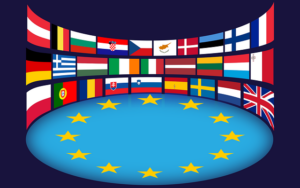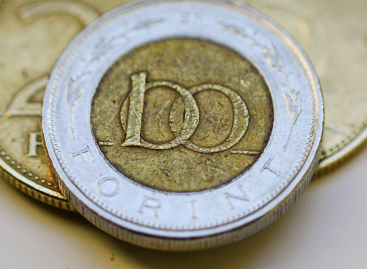A new era in the global economy? – New challenges for our country
May 2025 brought an acceleration of change in the global economy. Tensions have increased in the Middle East in recent months, with two nuclear powers, India and Pakistan, briefly engaged in direct confrontation over terrorism and disputed water rights. The existing geopolitical tensions are leading to volatile commodity prices, while disrupting trade and supply chains. Renewed trade wars are slowing global growth and the expansion of international trade. Europe is making a radical energy market shift that will reduce Russian exposure in the long term but increase costs.
 In May 2025, trade tensions between the European Union and the United States escalated to a dangerous level. Last week, the US president threatened to impose a 50% tariff on EU products from June 1 (although he suspended this for a month). If the European Union takes retaliatory measures, they will further escalate the trade war and affect the EU’s exporting sectors. Hungary – as an export-oriented EU member state particularly exposed to the performance of the automotive industry – will suffer from the decline in global demand and disruptions in supply chains.
In May 2025, trade tensions between the European Union and the United States escalated to a dangerous level. Last week, the US president threatened to impose a 50% tariff on EU products from June 1 (although he suspended this for a month). If the European Union takes retaliatory measures, they will further escalate the trade war and affect the EU’s exporting sectors. Hungary – as an export-oriented EU member state particularly exposed to the performance of the automotive industry – will suffer from the decline in global demand and disruptions in supply chains.
The US foreign policy is moving towards stronger national interest enforcement. As a result, it has come into conflict with many of its former partners and economic competitors, resulting in more subdued foreign trade and economic growth. This effect will be mitigated in the future by the countries that are excluded from the US market improving their situation partly through trade with the EU. All this also means that the EU will sooner or later have to defend itself against the dumping of cheap (primarily Chinese) goods, the first signs of which are already visible.
For Europe, the economic impact of Russia’s war against Ukraine is significant, which, together with higher energy prices, the effects of sanctions and the compulsion to arm, significantly dampens growth prospects. Although the elimination of sanctions would improve economic growth prospects for the EU, and in particular for Central and Eastern Europe, this impact will be moderate due to the disconnection from Russian energy. The long-term contribution of the EU’s extremely increased armaments spending to economic growth is moderate, and at the same time it takes resources away from other areas that are more supportive of growth.
The Hungarian government is primarily trying to establish good relations with eastern countries (and the USA), and has so far managed to attract investments mainly from China and South Korea. The automotive industry, and in connection with this, the development of international demand for battery products, and the EU’s regulations affecting these sectors are decisive for Hungary’s economic prospects. However, the outlook remains unfavourable.
Related news
The IMF has marginally improved its global growth forecast for this year
🎧 Hallgasd a cikket: Lejátszás Szünet Folytatás Leállítás Nyelv: Auto…
Read more >







